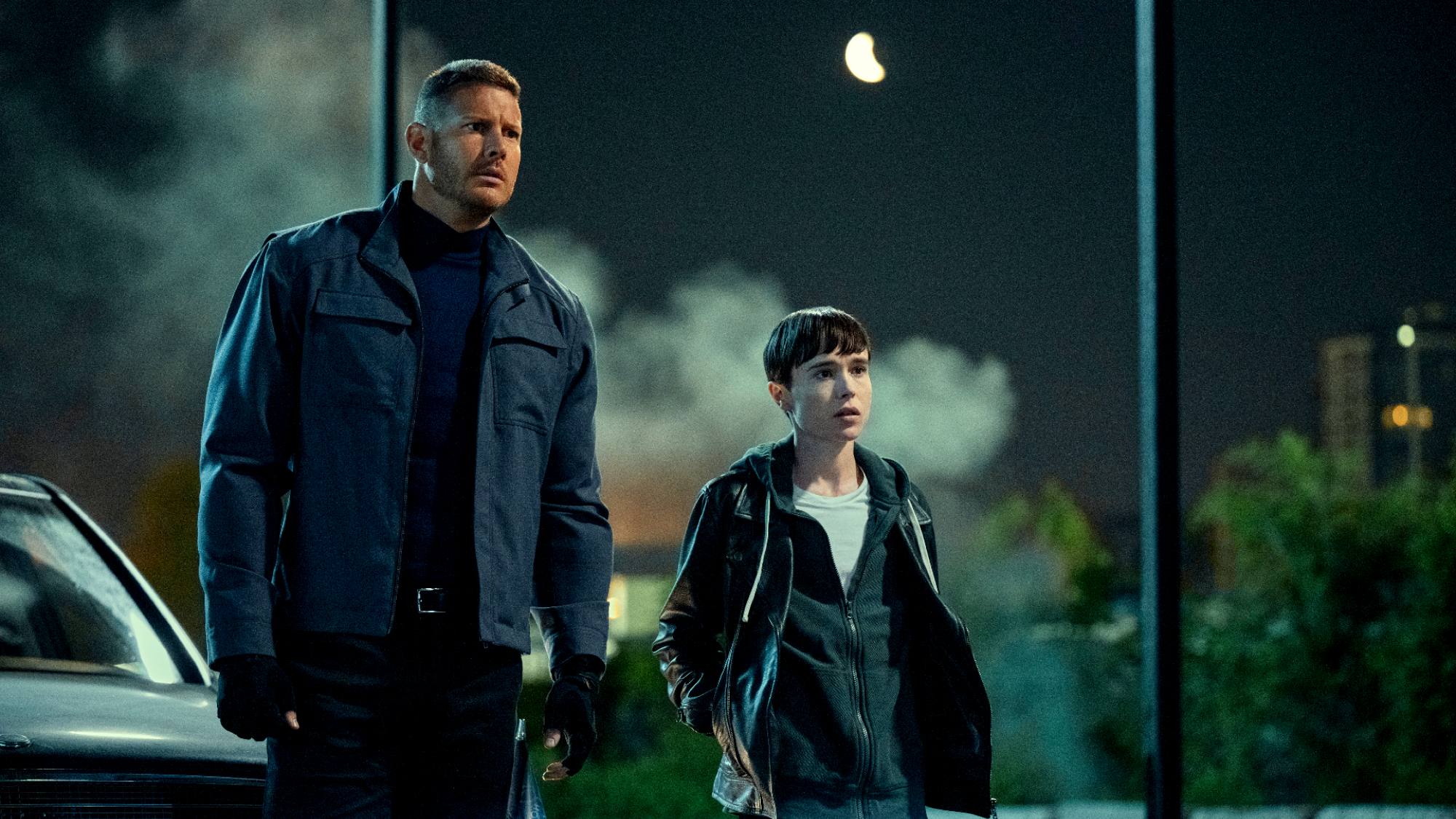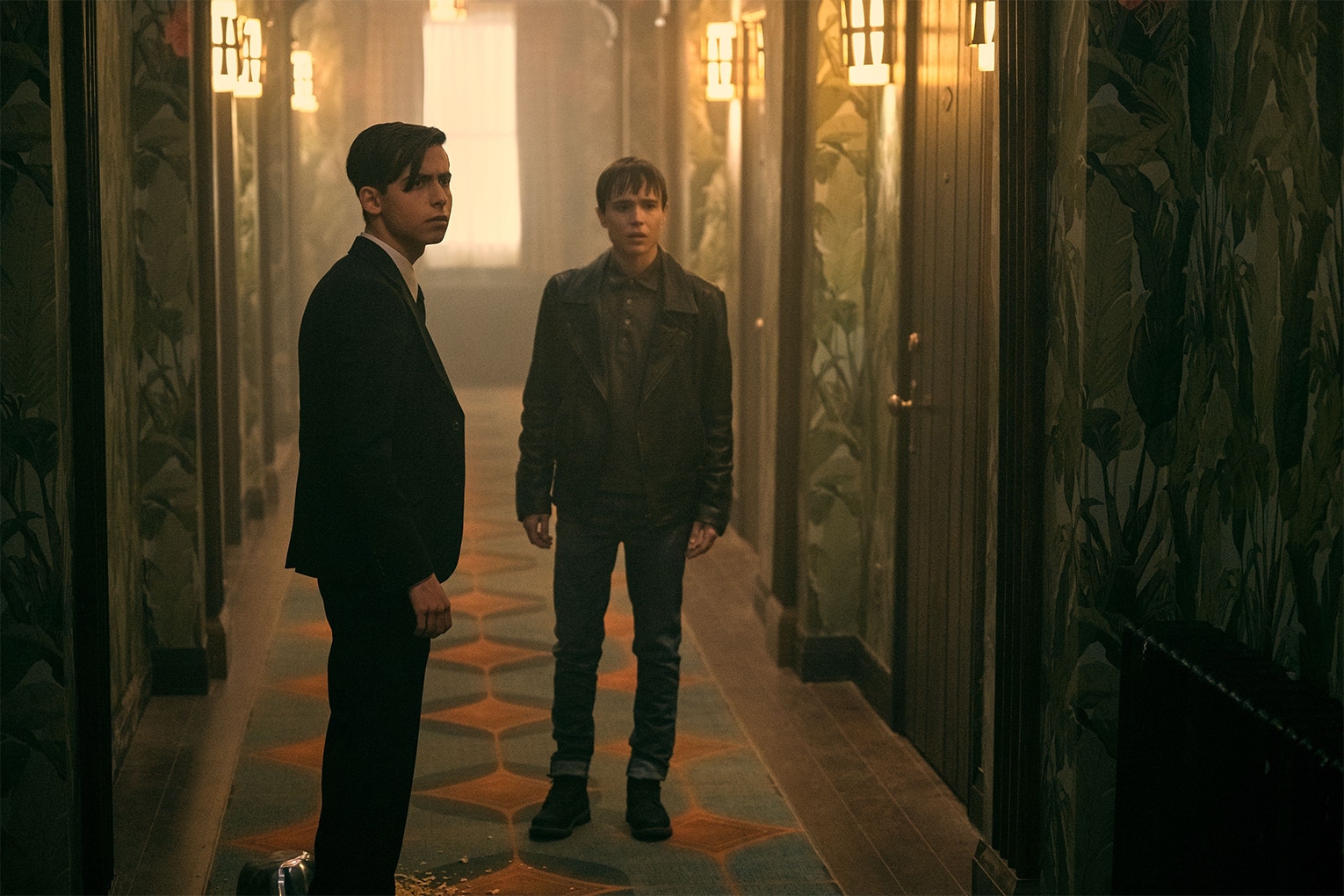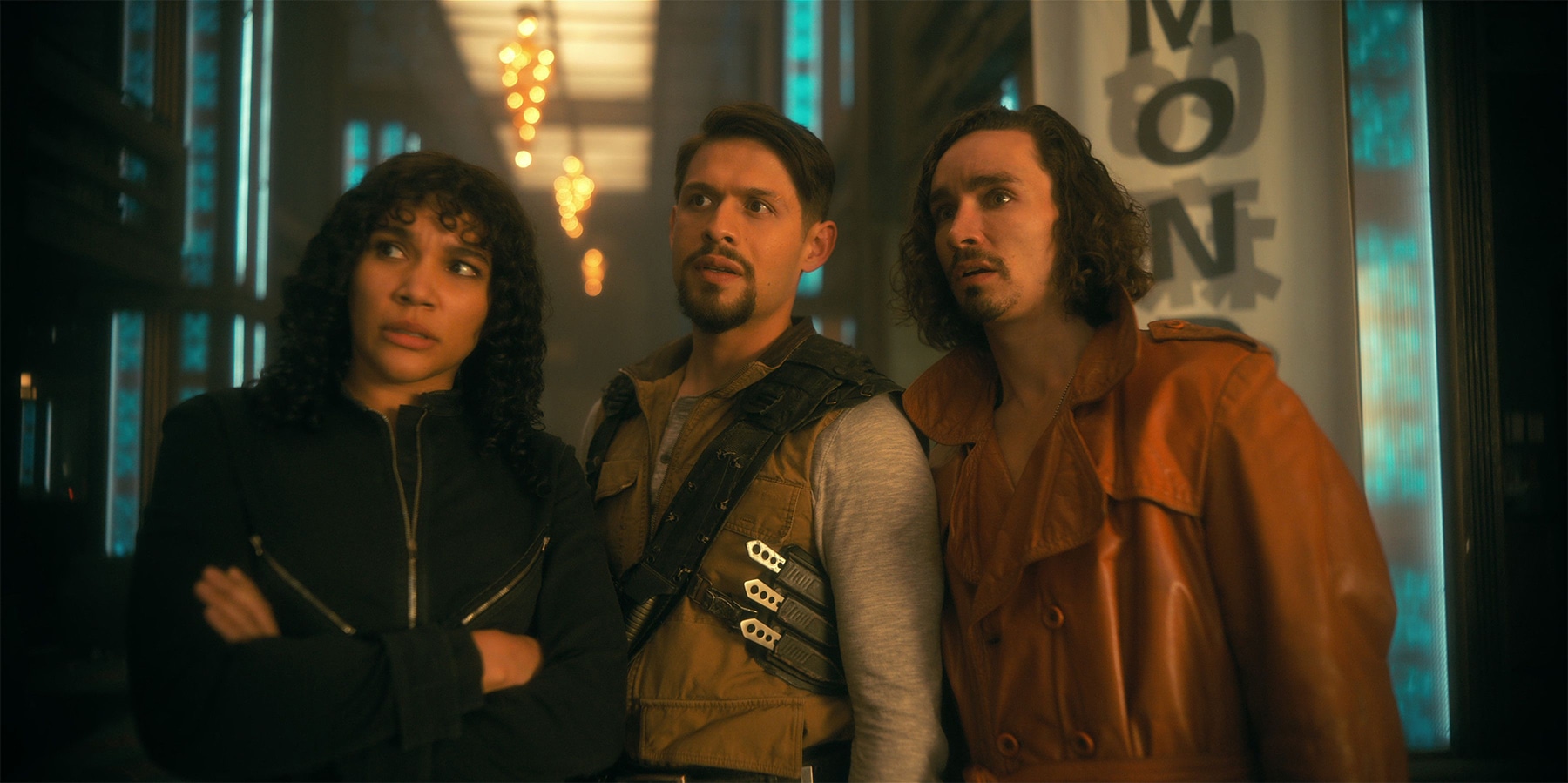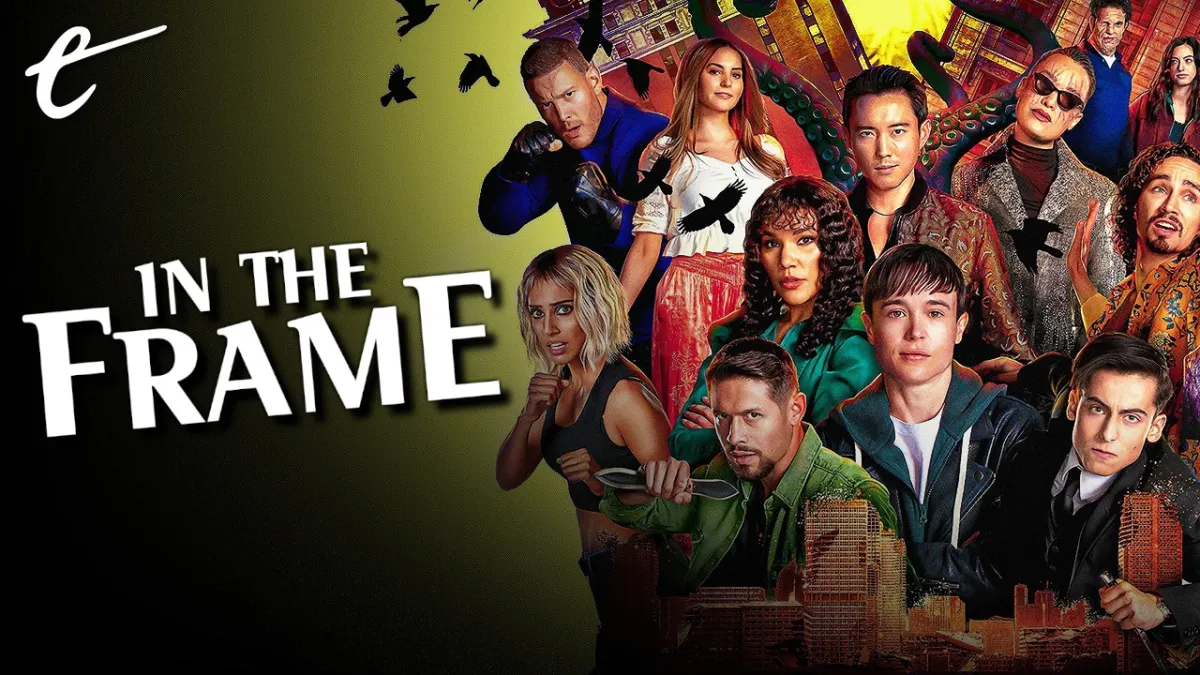This article contains some spoilers for The Umbrella Academy season 3 on Netflix.
French filmmaker Jacques Rivette famously argued in Cahiers du Cinéma that “every film is a documentary of its own making.” It is also a snapshot of the world in which it was made.
This thought applies to the third season of The Umbrella Academy, which released on Netflix last week. In basic narrative terms, season 3 of The Umbrella Academy is a familiar assemblage of superhero tropes. Picking up directly after the end of the second season, the eponymous team of superhero misfits find themselves returned to an unrecognizable present. They changed history, and the ripple effects of that action have set in motion nothing less than the apocalypse.
This is all fairly standard superhero stuff. More than that, it is fairly standard Umbrella Academy stuff. In narrative terms, the stakes of the third season are not too different from the stakes of the previous two seasons. The characters even acknowledge as much. “All we ever do is save the world for a day, pat ourselves on the back, and then everything goes to shit again,” complains nominal team leader Luther (Tom Hopper). He’s not wrong. That’s the tragedy of superheroism.
However, there is something markedly different about season 3 of The Umbrella Academy, and it has little to do with the particulars of the plot or the stakes. Instead, it feels like an inescapable reality of the show’s production creeping in around the edges of the frame. It’s something never acknowledged or discussed within the text of the show itself, but instead an illustration of Rivette’s aphorism. It’s a reminder of how and when the show was made.

The second season of The Umbrella Academy premiered in July 2020, during the early days of the pandemic. Owing to the sort of post-production that such a show requires, the second season wrapped much earlier in November 2019. As a result, the second season was part of a wave of pre-pandemic media released during the pandemic itself, and the show reflects that. The second season has a large cast and feels somewhat expansive, set against the backdrop of Dallas in the 1960s.
In contrast, the third season was entirely a product of the pandemic. Netflix commissioned it in November 2020, with principle photography beginning in February 2021 and wrapping in August 2021. The pandemic affected everything, and naturally those effects trickled down into film and television production. As production slowly resumed during the pandemic, those working on film and television shows found the process of making entertainment had changed dramatically.
Media production became both more insular and more sterile to limit the risk of contagion among cast and crew. Those working on such productions would have to go into quarantine and isolation, often sequestered into tight and small “bubble zones” cut off from the outside world. Guidelines limited the number of personnel on set, which meant that many productions cut down on extras. Food was served in “catering pods.” There were “Zoom table reads and Zoom production meetings.”
Season 3 of The Umbrella Academy was produced under these constraints. There was a significant increase to the time spent on the show, as Tom Hopper explained, “the COVID protocols mean that we have shorter days, which means that the actual length of the shoot is going to be a lot longer.” It also meant less time outside of the studio, with Robert Sheehan recalling how excited the team was when they got to shoot on location, “The crew was buzzing that they all got outside.”

There is an ongoing debate about the extent to which these productions can or should acknowledge the reality of the pandemic. Shows like Grey’s Anatomy built storylines around the pandemic, while shows like Succession opted to ignore it completely. Narratively, The Umbrella Academy falls very much into the latter camp, never mentioning the words “pandemic” or “COVID” and avoiding any reference to communicable diseases.
Of course, even viewers without all this knowledge of Hollywood production can pick up on the changes forced by the pandemic. It’s obvious, for example, when Star Trek: Picard structures its narrative to limit the number of scene partners working on a closed set with octogenarian star Patrick Stewart. Casts on projects like The White Lotus and Old are kept small and geographically isolated. Actors are blocked to stand further apart. Displays of on-screen intimacy are limited.
In many cases, this reality bleeds through into the mood of the production, if not the narrative. Noting how the cast of Severance was kept isolated to keep production rolling, reporter Alexis Soloski noted that their days largely consisting of being ferried from their hotel rooms to the closed set provided “an odd parallel with the show itself.” Severance has nothing to do with disease or quarantine, but it is about loneliness and disconnect, which bleeds from reality into the show.
This is very much the case with season 3 of The Umbrella Academy. Even before the apocalypse kicks into high gear, the world of the third season feels curiously empty. With relatively few extras, early scenes rely heavily on sound mixing to create a sense of activity, filling the air with the background noise of car horns, phones ringing, chatter in the background. It is uncanny and unsettling, even if it isn’t something that the viewer immediately and consciously recognizes.

Much of the season is set in two prime locations. The Umbrella Academy has been occupied by an alternate team, repurposed as the Sparrow Academy. Klaus (Robert Sheehan) leads his dispossessed siblings to the Hotel Obsidian. It is a transitory space. “Nowadays she’s just a flophouse, a party house, for those of us not looking to be judged by society’s rules and norms,” Klaus explains. “And the best part of it is she’s going to look after us, no questions asked. Never, ever.”
Hotels can be creepy and lonely at the best of times, even before they became quarantining spaces. There is a reason that The Shining is such an effective horror movie. However, there is something particularly claustrophobic about the Hotel Obsidian. Reflecting the fact that it was secretly designed and built by Umbrella Academy founder Sir Reginald Hargreeves (Colm Feore), it neatly mirrors the Umbrella Academy itself, to the point that it could convincingly be a redressing of the same set.
At the top of the hotel, Diego (David Castañeda) discovers a mysterious portal to an alternate universe. That alternate universe turns out to be a mirrored image of the Hotel Obsidian, albeit lit in shades of orange rather than blue. The doors are locked; there is no escape. The entire universe is a hotel. “Great,” complains Lila (Ritu Arya) after Reginald leads them on a mission into this mirror world. “So we’ll just stay in the hotel forever, staring at the walls and eating bad sushi.”
As the season progresses, the imagery grows increasingly morbid and apocalyptic. Five (Aidan Gallagher) journeys to the headquarters of the Commission, the time travel authority that served as an antagonistic force in the first two seasons. He finds it eerily empty, decayed and collapsing. Klaus spends more time in the afterlife. As the season progresses, the world itself grows smaller and smaller. First animals disappear, then people, then eventually the world outside the hotel.

While the first two seasons of The Umbrella Academy built to a climactic apocalyptic event that the team worked to prevent, the third seems to largely be about living through the end of the world. Midway through the season, Five discovers that the universe is being ravaged by a “Kugelblitz,” which is “the end of everything: every rock, every star, every atom sucked into a radiant black hole” that is “randomly collapsing matter across every moment in time till nothing’s left.”
Much of the third season is built around the powerlessness of these characters in the face of this sort of claustrophobic annihilation. It’s a strangely poignant approach to the sort of stakes that superhero stories usually employ so casually. It’s also an approach that resonates with an audience that has lived through lockdowns and isolation, grappling with what it means to be alone living through events that feel apocalyptic in scale. The characters are in their own bubble.
Towards the end of the season, Luther organizes a wedding to his sweetheart Sloane (Genesis Rodriguez). The only 10 people remaining in existence attend the party, held in a hotel event space designed to host hundreds. It’s a lovely, sad, sweet, melancholy, and heartwarming sequence, one that captures the sense in which so many important life events – like weddings and funerals – took on an even greater intimacy and loneliness in these strange times. The world never seemed smaller.
While season 3 of The Umbrella Academy is not about the pandemic in any literal or narrative way, the season captures a lot of the mood of the era. As a result, the season is moving in unexpected ways. The timing of its release is also part of that. The crisis is far from over and the pandemic has yet to be classified an endemic, but the narrative is shifting. There is a lot of processing to be done, working through these very troubled and unsettling couple of years.
The third season of The Umbrella Academy is a surprisingly affecting attempt to grapple with the feeling and the mood of the world in which it was produced, and it’s all the richer for the way in which it captures the experience more than the reality of it.





